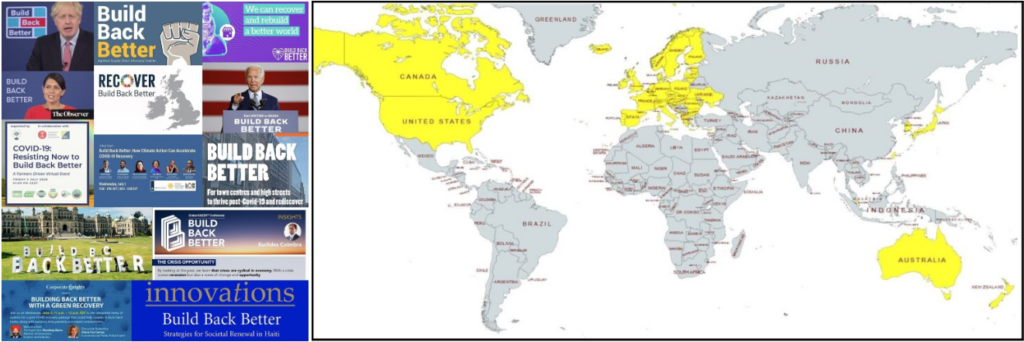Biden Inflation and State of Economy for 2024 Election
Gary Cohn appears on Face The Nation to discuss the finance, the economy and the pain felt by consumers. He won’t say it directly, for obvious reasons, but what Cohn describes in terms of political support boils down to Main Street business supporting Donald Trump and Wall Street Multinational Corporations supporting Joe Biden. That is ultimately what is obvious at a macro level.
I’m starting the video at 03:08 for the purposes of emphasizing inflation. What Cohn says about U.S. inflation is essentially accurate and I have a Cliff Notes, tldr, HERE. However, what Cohn says about tariffs creating inflation is not accurate, as outlined by the 2017 through 2020 results of Trump tariff policy. Cohn says, “No one absorbs tariffs, except the consumer,” this is false. As we saw in 2017, 2018, and 2019 China, Asia and the EU essentially dropped their export prices to retain access to the USA market and offset tariff costs. That’s just a statistical reality.
The transcript is HERE; however, I want to draw attention to a geopolitical aspect that is not getting enough attention. Specifically, the cost of FOOD PRODUCTS and the attached inflation.
Why is food inflation continuing to be a problem? Why is food inflation not just a USA problem? Why are the EU farmers protesting? These questions are easily answered, and yet no one in the Western financial press will explain.
The Build Back Better agenda, known in the USA colloquially as the Green New Deal, carries with it massive increases in cost for energy products. Fertilizer, which needs natural gas, and farming, which needs large amounts of fuel, diesel and fuel oil, uses costly energy products. Packaging, plastics (petroleum derivatives) and cardboard also require large amounts of energy.
The manufacturing (heating, cooling, freezing) as well as storage and transportation of food products also use massive amounts of energy. Additionally, and specifically because of the nature of their consumption, the increased energy costs associated with generating food travels quickly through the supply chain.
Food inflation is always the first thing you notice when the prices of energy products skyrocket. This is well known and not subject to debate; everyone accepts this.
In the past 30 +/- years, large multinational corporations known as Big Ag have created a system where the USA generates a massive amount of the global food supply.
The advent of modern farming fertilizer, pesticides, seed genetics and other farming products/equipment that increase crop yield, has also been a big factor in the capacity of the USA and Western farming world to increase production. As the globe became more reliant on the production efficiencies of the Big Ag “Western world,” they simultaneously became dependent on the outcome. That dependency put them at risk of feeling the impact of inflation when you think about the farm products.
The result was that when Western Ag farming costs skyrocketed, the high cost of harvest outcomes were not just felt in the USA and/or Western nations. As food production costs increased, the higher costs of production transferred into all the exported products. Food inflation was exported globally.
The Western Build Back Better and Green New Deal energy policies subsequently meant the world was going to pay a higher price for food globally. That’s what happened.
The Yellow Zone was responsible for a higher percentage of global food production. The Yellow Zone is also the place where energy policy was changed in such a radical format that massive increases in energy costs were created.
The Yellow Zone (geopolitically the “West”) drove up the cost of farming, the Gray Zone pays a higher price. This was all by design and not accidental. The corporations who supported the BBB/GRD agenda all benefit. The citizens who need to eat, do not benefit.
So, when you see EU farmers protesting against the ridiculous ENERGY POLICY changes of the West, you must accept the USA bears a greater responsibility for creating and demanding the increased prices that farmers globally are having to deal with.
In Gray Zone areas, where domestic food production costs are not subject to the changed energy policy, there is little to no food inflation. However, the more dependent the country is to food imports (ingredients or final product) the more they are impacted by rising farming costs.
Grey Zone countries that can self-sustain on the production of food and have no energy agenda have little food inflation.
The more the country is strangling energy production and driving up energy prices, the higher the cost of farming and subsequently the higher index on food inflation. The two metrics are directly related.
Food inflation globally is a big problem. Western energy policy is exactly why!







Post a Comment